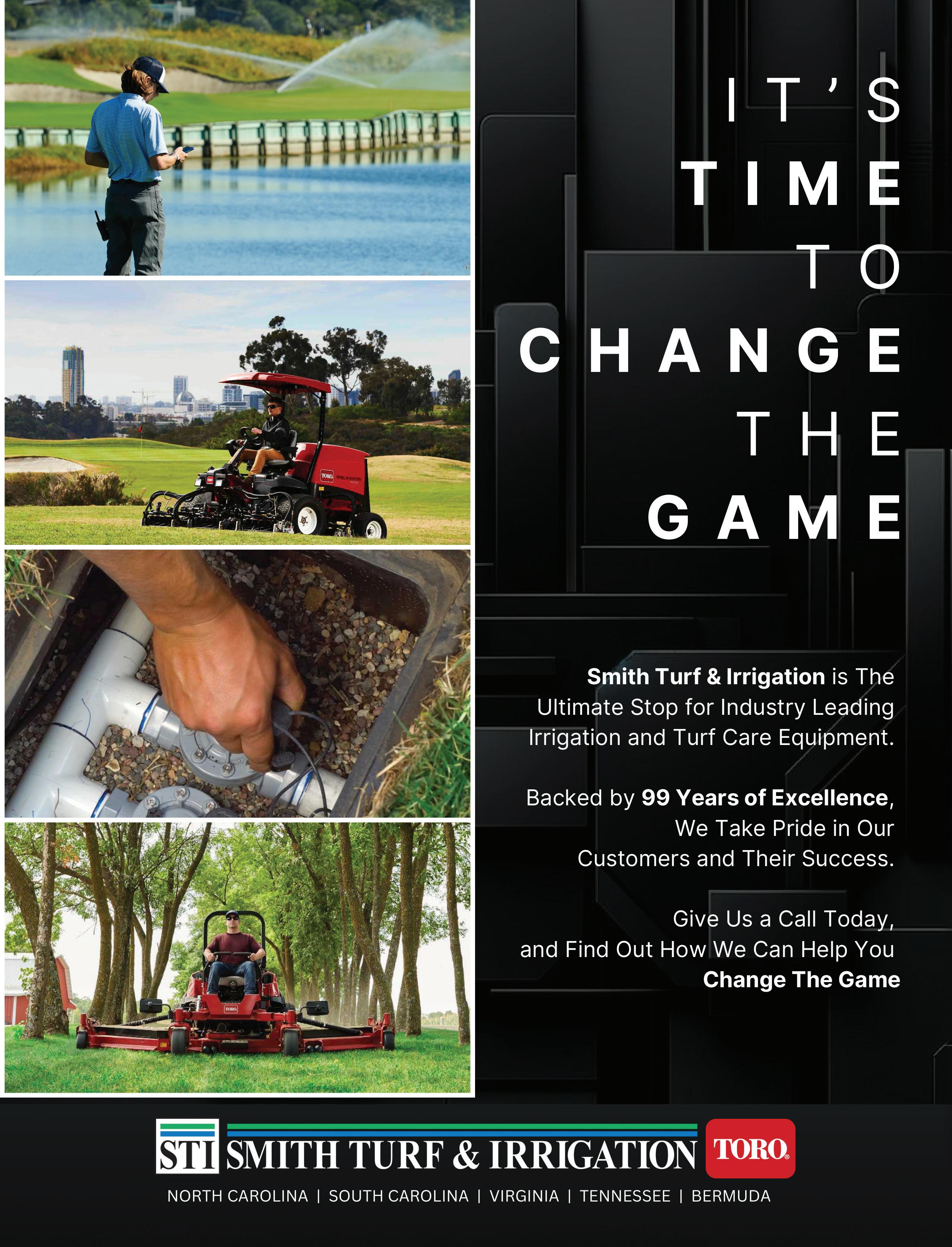
January 13, 28 – 30
Plus, Pesticide Trends in Sports Turf


January 13, 28 – 30
Plus, Pesticide Trends in Sports Turf

When it comes to your lawn, you deserve more than just checked boxes. TifTuf® turfgrass not only meets all the criteria but sets new standards. With unmatched drought tolerance, superior water efficiency, and top performance in national trials, TifTuf® is the gold standard of Bermudagrass.
In just seven years, TifTuf ® has saved over 48 billion gallons of water across 2 billion square feet of installations. It’s the only Bermudagrass to top National Turfgrass Evaluation Program trials 93% of the time, far ahead of Tahoma 31 at 73%.
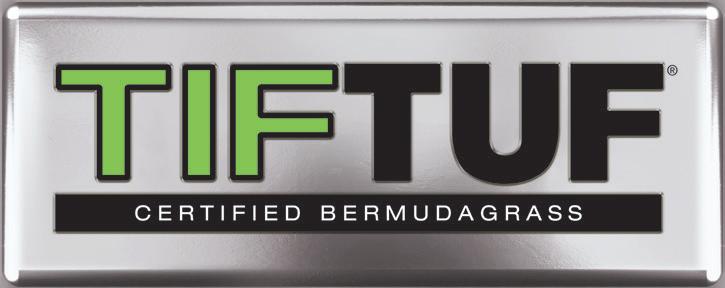
Choose the grass that doesn’t just check the boxes but redefines them. Elevate your expectations with TifTuf® . www.TheTurfgrassGroup.com



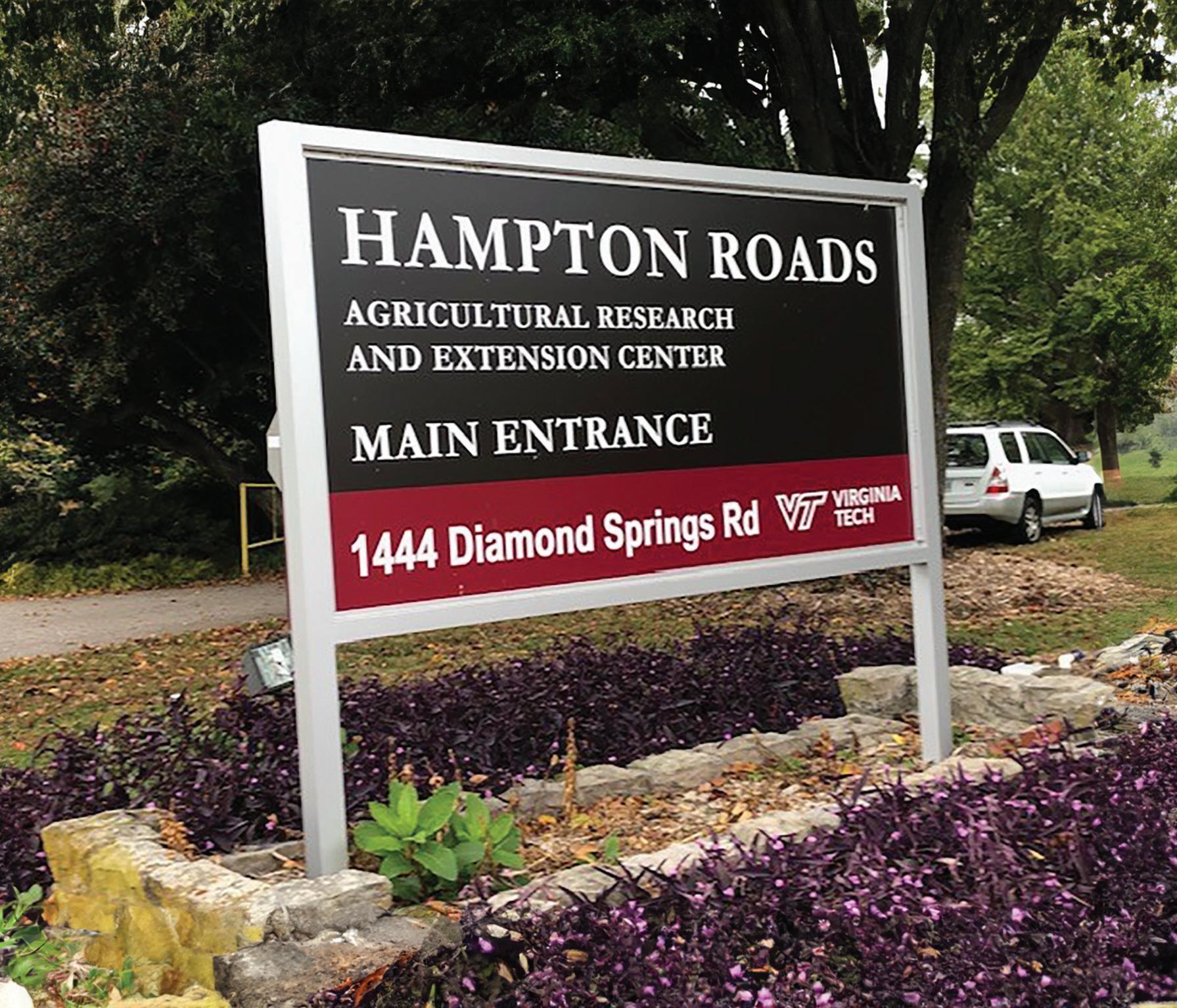
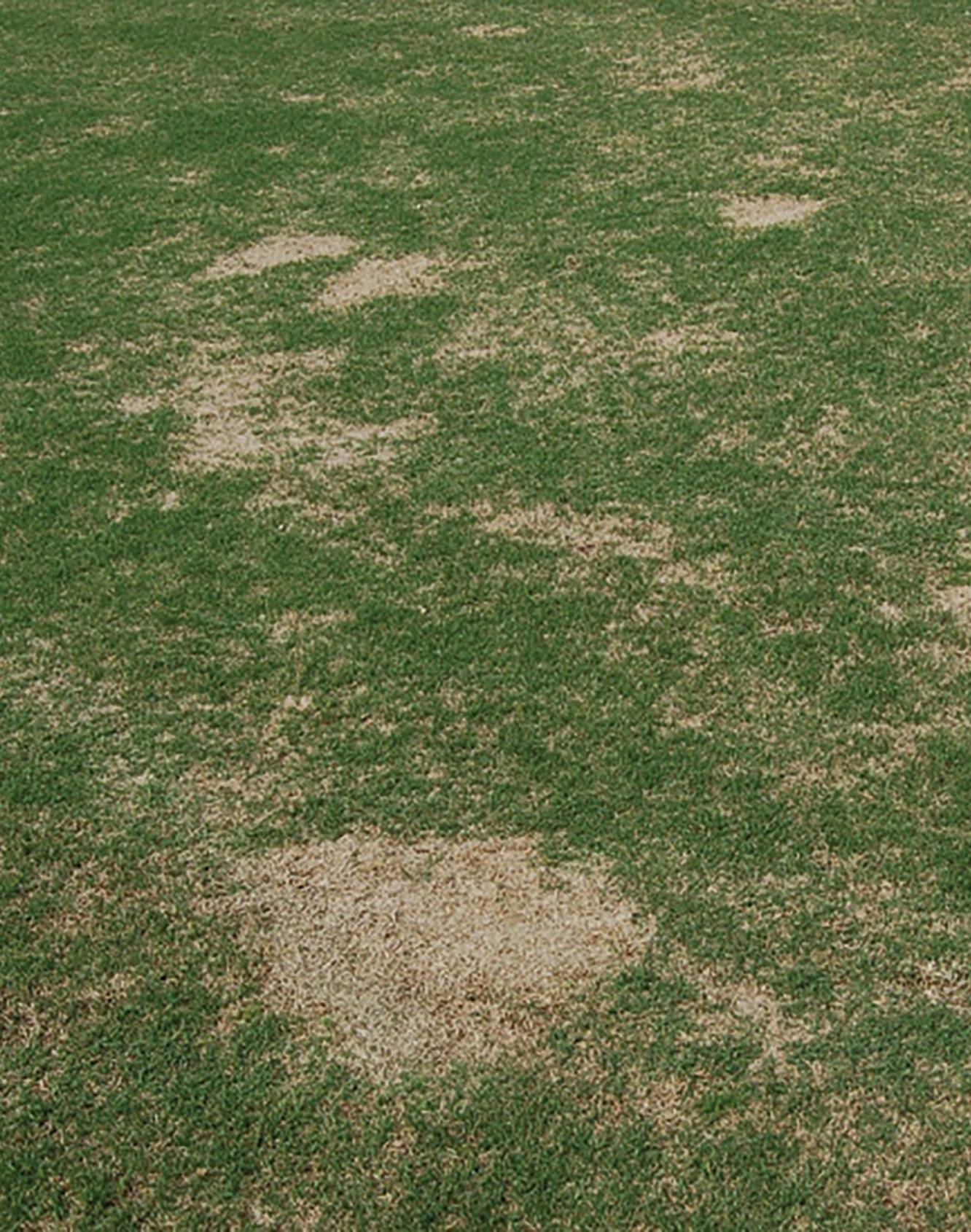




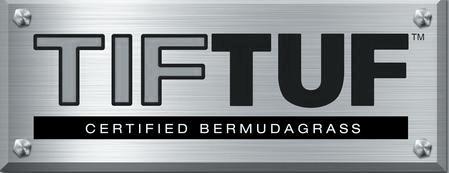

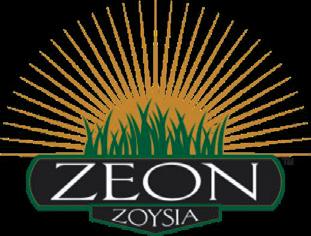

Wes Bray VTC President
VTC and the VTC Environmental Institute continue to provide the best training, education, and networking opportunities for you to take advantage of. None of this is possible without the hard work of our Board and committee members. We are blessed to have their combined expertise and experience to help guide us. They are always asking, what can we do for our members? Why should someone join the VTC?
We need your input. What are we doing that you’d do differently? What should we offer for programs? What would inspire you to encourage your associates to join? Give us a call, talk to a board member and let us know what’s important to you.
Upcoming events include the Fredericksburg Road Show in March. This event could not happen without committee chair Sam Burris and the Virginia Tech Turf Team. Sam gives his time to several industry groups. We would like for this event to grow into a bigger regional event. What would you like to see this event become? Contact Sam and share your thoughts.
Past president Phil Bailey works with Isle of Wight Parks and Rec and chairs the Come to the Bay conference in his spare time. He has put together three days of fantastic programs.
Other Board members help keep the wheels on the track. Ray Funkhouser retired from PBI Gordon and is working more than ever as Treasurer while participating in and officiating track and field events around the world.
Harris Wheeler retired from the Richmond Public Schools and works tirelessly to promote the VTC Environmental Institute’s service project while also running a landscape maintenance company.
Other board members whose time and knowledge add value to the VTC and VTC Environmental Institute are:
• Rick Linsday (Mow Cow)
• Jack Finding (Newsom Seed)
• Bruce Sheppard (Weedman)
• T.J. Skirsky (Advanced Turf Solutions)
• Craig Zeigler (ALM)
No question our success is because of these individuals’ involvement. Imagine our success with your input. We look forward to hearing from you.
Wes Bray VTC President
Virginia Turfgrass Journal is the official publication of
The Virginia Turfgrass Council P.O. Box 5989
Virginia Beach, VA 23471 Office: (757) 464-1004
Fax: (757) 282-2693 vaturf@verizon.net
PUBLISHED BY
Leading Edge Communications, LLC
206 Bridge Street, Suite 200
Franklin, Tennessee 37064 (615) 790-3718
Fax: (615) 794-4524
info@leadingedgecommunications.com
VTC OFFICERS
President
Wes Bray Lawns & Gardens Plus (757) 422-2117
Vice President
Harris Wheeler, CTP
Richmond Public Schools (retired) (804) 475-4561
Secretary / Treasurer
Ray Funkhouser PBI Gordon (retired)
Past President
Phil Bailey, CGCS Isle of Wight County Parks & Recreation (757) 572-1981
VTC DIRECTORS
Sam Burris
Jack Findling
Richard Linsday
Bruce Sheppard
T.J. Skirsky
Craig Zeigler
VTC ADVISORY MEMBERS OF THE BOARD
Mike Goatley, Ph.D. (Chair)
Shawn Askew, Ph.D.
Alejandro Del Pozo-Valdiva, Ph.D.
Jeffrey Derr, Ph.D.
David McCall Ph.D.
Dan Sandor, Ph.D.
Cynthia Smith, Ph.D.
EXECUTIVE DIRECTOR / DIRECTOR OF PROGRAMS
Tom Tracy, Ph.D. (757) 464-1004
VIRGINIA TURFGRASS FOUNDATION
Brandyn Baty (757) 585-3058
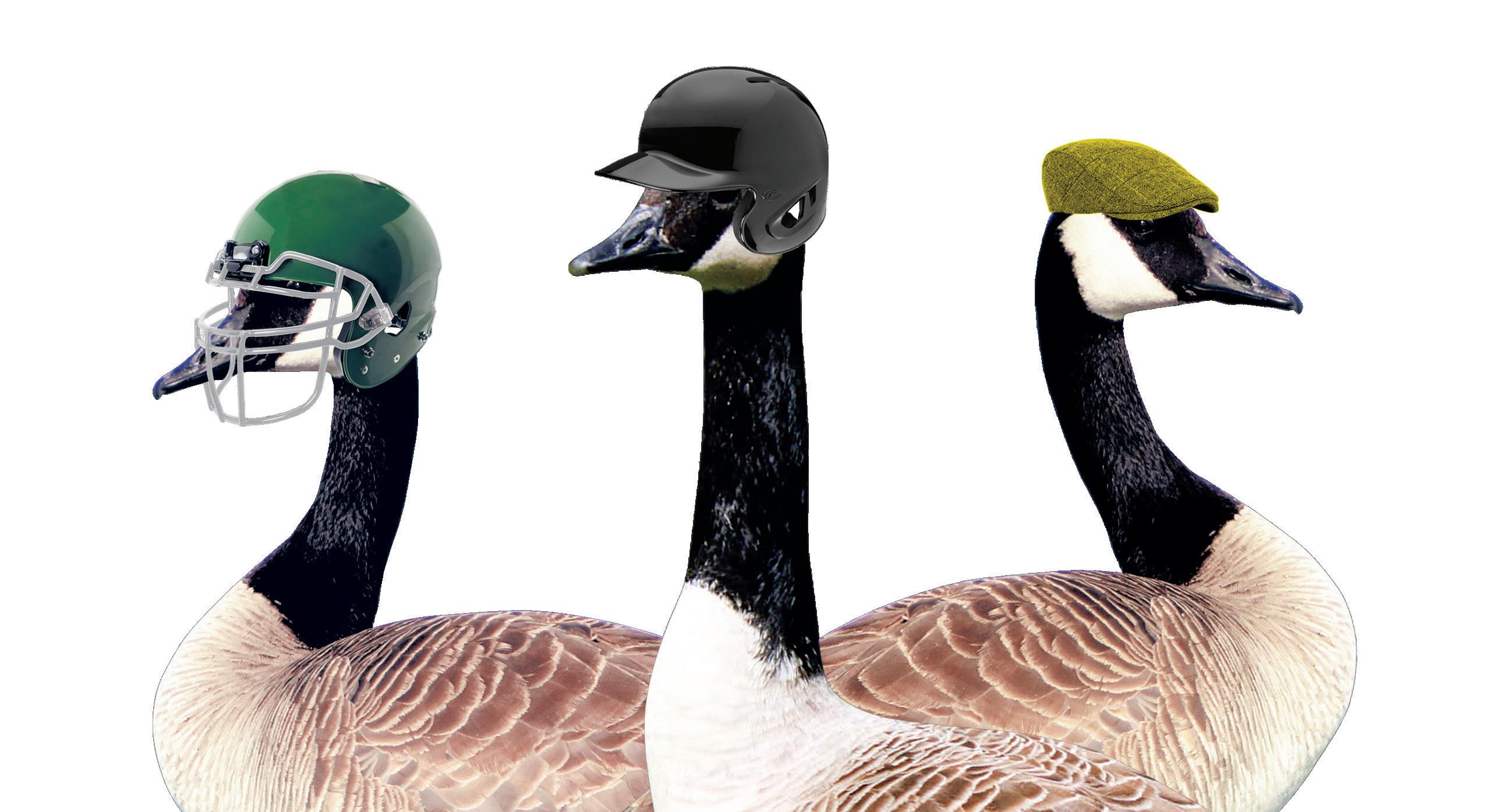
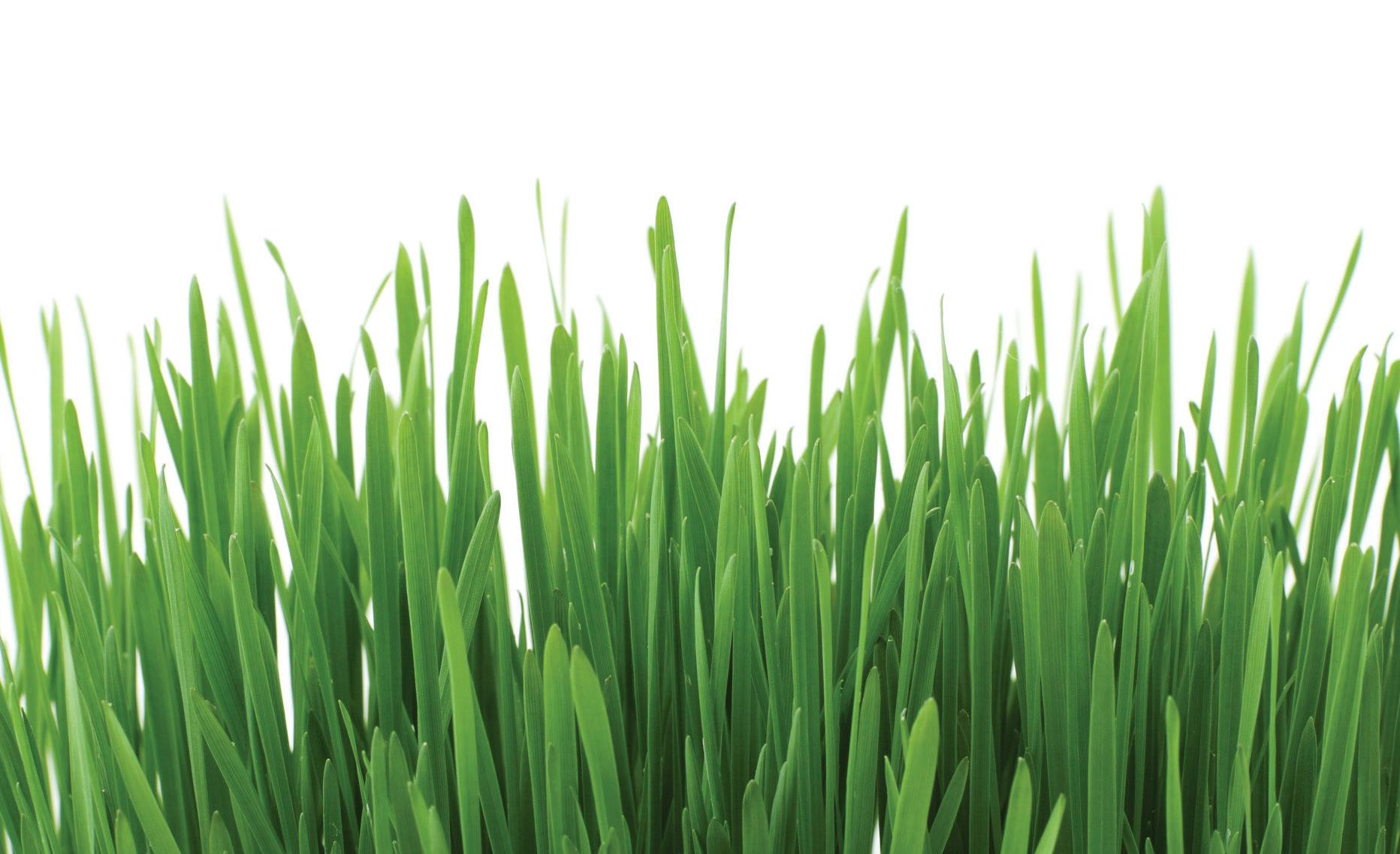



“We purchased a three pack of dogs a year ago and are very happy with them. They certainly kept the geese off the field last Spring, Fall and this Spring. We always had lots of goose poop to cleanup every spring.
We had several people who were very skeptical that the dogs really worked. Convincing was easy...just hang around and watch. A group of geese would fly over in low formation, bend their necks down to look at the dogs, perhaps take another pass or two repeating the inspection for danger, and then fly off. Seemed like there was always a group flying over to give a demonstration.
The volunteers who had to rake and shovel goose poop are very happy. We’d easily fill a 32 gallon garbage can or two. Thanks again for a wonderful time saving product!”
- Paul Heit Maintenance/Concessions,






Tom Tracy, Ph.D. VTC Executive Director
Virginia Department of Agriculture and Consumer Services is an agency that affects all aspects of our great industry because it regulates pesticides, fertilizers, and production and distribution of seeds and other products we use daily. Fortunately, we have a very long and fruitful relationship with them. Together we addressed the issue of allowing persons to take pesticide examinations without unreasonable delays, reducing the waiting time from months to days, or even hours. With VDACS guidance, we are now offering pesticide recertification online (a service that is free to our members). Apply fertilizer? For those who need to become Certified Fertilizer Applicators or who want to keep their licenses current, VDACS works with us to provide both. This issue of the Journal has devoted three pages to that critical state agency. Other agencies, such as the Department of Conservation and Recreation, will be featured in future editions.
But pesticides, fertilizers, seeds, and other items regulated by VDACS are not the only things that bind us together. Laws enacted by Virginia’s General Assembly affect each of us: pesticide bans, outlawing gas-powered leaf blowers, and enabling non-licensed volunteers to apply pesticides are just three pieces of legislation we focused on last year. Expect more of the same in 2025! Each year Senators and Delegates introduce thousands of bills. We recently contracted with Beck Stanley, a great friend of the industry whom I have known for many years, to guide us through the labyrinth and nuances of the legislative process. Beck has been featured in previous issues of the Journal. Expect him to be regular contributor to these pages.
Whatever your niche in the green industry, please realize the many things that unite us. Years ago, I read a book written by the leader of what I consider to be a radical political group. The author said his group was seeking to impose severe restrictions on a certain sector of the seafood industry. He said getting those restrictions passed was easy because that sector was not unified. Let that not be said about us!
Tom Tracy, Ph.D. VTC Executive Director
Shawn D. Askew, Ph.D.
Virginia Tech 435 Old Glade Road Blacksburg, VA 24061 540-231-5807
askew@vt.edu
Alejandro Del Pozo-Valdiva, Ph.D. Virginia Tech
Hampton Roads
Agricultural Research Station 1444 Diamond Springs Rd. Virginia Beach, VA 23455 757-363-3900
adelpozo@vt.edu
Jeffrey F. Derr, Ph.D.
Virginia Tech
Hampton Roads
Agricultural Research Station 1444 Diamond Springs Rd. Virginia Beach, VA 23455 757-363-3912
jderr@vt.edu
Mike Goatley Jr., Ph.D. Virginia Tech 420 Smyth Hall Blacksburg, VA 24061 540-231-2951
goatley@vt.edu
David McCall, Ph.D. Virginia Tech 435 Old Glade Road Blacksburg, VA 24061 540-231-9598
dsmccall@vt.edu
Dan Sandor, Ph.D. Virginia Tech 170 Drillfield Dr. 411 Price Hall Blacksburg, VA 24061 540-231-9775
dsandor@vt.edu
WITH SUPPORT FROM:
Thomas P. Kuhar, Ph.D.
Virginia Tech Dept. of Entomology
216 Price Hall
170 Drillfield Drive Blacksburg, VA 24061 540-231-6129
tkuhar@vt.edu


exist to serve our great industry, and providing pesticide recertification in various locations and using diverse platforms is an important part of that service. Last March, we dramatically expanded that provision by teaming up with Landscape Supply to produce and administer their online pesticide recertification webinar.
Were we successful? By any measure, the answer is a resounding, “YES!”
Nearly 1,000 persons attended and got recertified in various pesticide categories in seven states and the District of Columbia.
For 2025, the pesticide recertification will expand! We will offer recertifcation in more states and in more categories. Stay tuned for details and plan on attending!
2025 Dates: March 4 and 5



Virginia Turfgrass Council – Environmental Institute is a 501(c)(3) Corporation focused on building a bridge between the Green Industry and Environmental groups.
With YOUR support, VTC-EI can continue in its work in service projects, legislative advocacy and building goodwill.
To learn more about VTC-EI and to get involved, please contact us at virginiaturf@gmail.com
January 28, 29, 30*
Virginia Tech Hampton Roads AREC (1444 Diamond Springs Rd, Va Beach, VA 23455)
* Service Project on Monday, January 13


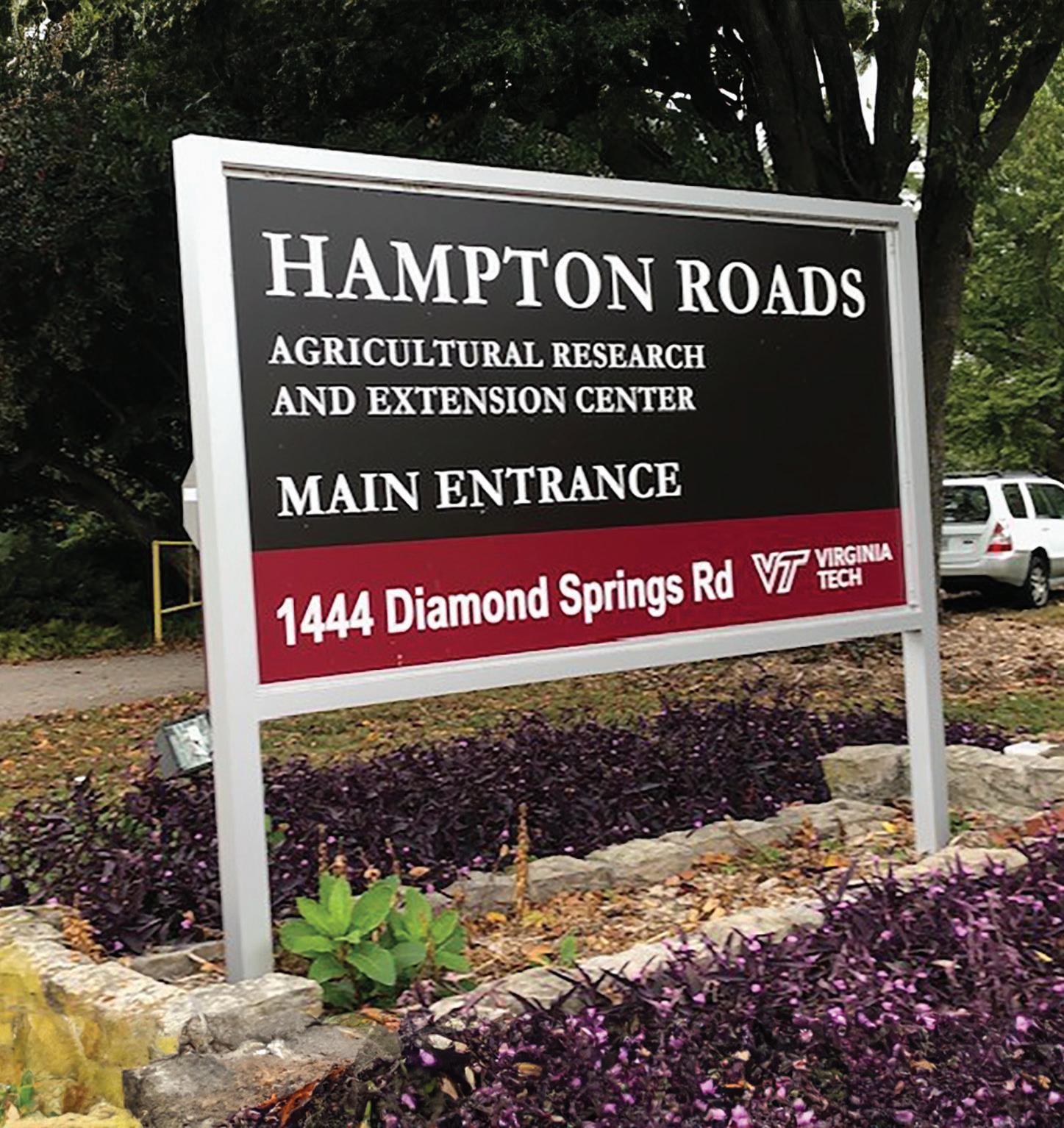



LOCATION
SERVICE PROJECT (January 13):
Chesapeake Bay Foundation’s Brock Environmental Center (3663 Marlin Bay Ct, Virginia Beach, VA 23455 )
CONFERENCE (January 28, 29, 30):
Hampton Roads AREC (1444 Diamond Springs Road, Virginia Beach, VA 23455)
SCHEDULE
SERVICE PROJECT (January 13):

CONTACT US
Virginia Turfgrass Council
P.O. Box 5989
Virginia Beach, VA 23471 (757) 464–1004
http://vaturf.org (click on Bay Conf)
8:45 – 11:30 CBF’s Brock Environmental Center; Oyster Conference Room Program and Lunch (provided)
11:30 – 1:30 Service Projects at CBF’s Brock Environmental Center and Pleasure House Point
CONFERENCE
Tuesday, January 28: Partnerships for Success
8:00 – 3:30 Topics Include: Success and Difficulties
Partnering with Environmental Groups
Elizabeth River
Project Partnerships
Chesapeake Bay Foundation Partnerships
Natives Gone Bad
Developing Partnerships with Underserved Communities
Lunch (on your own)
Dept. of Wildlife and Forestry:
Partnering with Industry
Virginia Tech and Virginia Cooperative
Extension as Industry Partners
Old Dominion University:
Overview and Partnering with Industry
Wednesday, January 29
8:00 – 3:30 Coastal Short Course: Day One of Two
8:00 – 2:00 Pesticide Recertification Categories: 3A, 3B, 5A, 6, 8, 10, and 60 (some categories need to stay later)
Thursday, January 30
8:00 – 3:30 Coastal Short Course: Day Two of Two
9:30 – 12:00 Review Class for Registered Technician Pesticide License
1:00 – 3:30 Pesticide Exams
(must have approval letter from VDACS to take the test)
This page is to sign up as a sponsor. Registration is available online at www.vaturf.org/come-to-the-bay
LOCATION
Mon (January 13)
Brock Environmental Center
Tue/Wed/Thur (January 28, 29, 30)
Virginia Tech Hampton Roads AREC
CHOOSE YOUR LEVEL
Combined Come to the Bay and Service Project Sponsorships
Presenter ($3,000)
Lunch ($700 Daily)
Coffee/Snacks ($400 Daily)
Friend of the Bay ($300)
Other: __________________
Service Project Sponsorships
American Beachgrass Plants ($500)
Student Supporter ($200)
Other: __________________
Virginia Turfgrass Council P.O. Box 5989
Virginia Beach, VA 23471 (757) 464–1004
http://vaturf.org (click on Bay Conf)
Sponsors may also register and pay online at www.vaturf.org/come-to-the-bay
Make checks payable to Virginia Turfgrass Council and mail with this form to: P.O. Box 5989, Virginia Beach, VA 23471 Or charge to credit card: AMEX VISA MasterCard and fax to (757) 282-2693
Card #: Expiration Date:
Verification
Name: Company:
Email:
January 13, 2025 • Virginia Beach • Brock Environmental Center
January 28 – 30, 2025 • Virginia Beach • Virginia Tech’s Hampton Roads AREC
Check the appropriate box or boxes. – You may also register and pay online at www.vaturf.org (see events page)
VTC Membership – JOIN or RENEW (January 01 – December 31) Regular: $100
Monday ( Jan 13 ) Service Project
Tuesday( Jan 28 ) Only
Wednesday ( Jan 29 ) Pest Only No Charge for Members
Tuesday AND Wednesday (Jan 28, 29) $85
Coastal Short Course ( Wed & Thurs ) $125
Thursday Pesticide Review & Test No Charge for Members Monday ( Jan 13 ) Service Project
Tuesday( Jan 28 ) Only
( Jan 29 ) Pest Only

or print clearly:
ongratulations to Liza Fleeson Trossbach, who retired from the Virginia Department of Agriculture and Consumer Services (VDACS) Office of Pesticide Services (OPS) on July 31, 2024. Liza worked in the Office of Pesticide Services for 24 years and led OPS as Program Manager for the past 16 years. As Program Manager, Liza was responsible for development of pesticide related regulations, planning and coordinating the development of pesticide programs to conform with federal laws, and development of polices and guidelines. In addition, she coordinated EPA grant applications and served as liaison between VDACS and Virginia’s pesticide industry stakeholders as well as national industry leaders and EPA. Throughout her career, Liza worked with industry leaders and state and federal agencies on the regulation of pesticides, and she is highly regarded as a subject matter expert in pesticide regulation. Liza is well known by Virginia’s pesticide industries, including both structural and agricultural.
Liza provided oversight of numerous pesticide projects in Virginia, including Virginia’s pollinator protection plan, electronic inspection forms for use by OPS pesticide investigators, remote applicator certification testing, Spanish language testing for Registered Technician certification, Spanish language applicator manuals, and she worked closely with the VDACS Information Technology staff to develop and implement the agency’s new online system that can be used for applicator certification, business licensing, and product registration. The online pesticide system has taken several years to develop and while this project is not yet complete, it is nearing completion and Liza devoted many hours to ensuring the success of this new system.
As a regulatory agency, VDACS was represented on the national level by Liza through her participation in the Association of Structural Pest Control Regulatory Officials, Association of American Pesticide Control Officials, and other pesticide related organizations and agencies. Throughout her career, Liza was very active in these national organizations, resulting in Virginia’s pesticide program being nationally recognized and more importantly her participation allowed Virginia to have a voice on pesticide related issues at the national level with other states and with the EPA. Liza served in leadership roles with various organizations over the years:
• Served as President of the Association of Structural Pest Control Regulatory Officials for three terms
• Elected as Director of the Association of American Pesticide Control Officials in 2020 and President in 2022
• Served as a member of the Board and later as Vice-President and President of the Pesticide Stewardship Alliance
• Served on numerous national working committees for these organizations and EPA
• In August 2023, Liza was elected to the Association of Structural Pest Control Regulatory Officials Hall of Fame
• Also in 2023, the Board of Directors of the Association of American Pesticide Control Officials bestowed upon Liza a Life Membership for her outstanding contributions.

The Association of Structural Pest Control Regulatory Officials (ASPCRO) recently inducted Liza into the association’s hall of fame. ASPCRO is a professional association comprised of the state regulatory officials responsible for regulating services provided by the structural pest control industry in their respective states. The induction highlights the positive impact Liza has had on the structural pest control industry, the regulatory community, and her contributions to ASPCRO.
In speaking of her hall of fame induction, Liza stated, “I am honored to have been recognized by my colleagues and peers. I am so grateful for the opportunities that have been afforded to me by the agency in allowing me to participate with this and other groups involved in pesticide regulation nationwide. To represent not only VDACS but to also be selected to advocate for pesticide regulatory officials and programs on this stage is and has been rewarding and humbling and I consider it a career peak.”
Throughout her career, Liza has gained valuable experience with state and federal laws governing the regulation of pesticides, served in leadership roles for a variety of industry organizations, and she is highly regarded as a subject matter expert in pesticide regulation. Liza is the ASPCRO immediate past president and has served on the Board of Directors since 2008. She has the distinction of serving as ASPCRO President for three terms and Immediate Past President for four terms. In addition to serving on several working committees, she started and chaired the Bed Bug committee which was established as a liaison to assist state, tribal, and territorial lead agencies, the Environmental Protection Agency and other stakeholders with concerns over critical emerging pests threatening public health. Through her leadership, a nationwide survey, review of testing protocols, development of a clearinghouse for bed bug resources, and label language review played a key role in assisting states and federal agencies in promoting meaningful policies to control the public health pest and setting the stage for the development of what is now ASPCRO’s most important working committee, the Public Health Committee.
For her many contributions to ASPCRO in furtherance of the association’s goals to protect public health and foster the development of practical public policy related to regulation of the pest control industry and consumer health protection, Liza was inducted into the ASPCRO Hall of Fame.

Nicole Wilkins was promoted to fill the Program Manager position on August 25, 2024. For the last two years as Senior Compliance Officer on the management team of OPS, Nicole was responsible for compliance reviews of pesticide violations. She crafted VDACS’ voice in fact finding and formal hearings regarding violations of Virginia’s laws and regulations, playing a pivotal role in the agency’s mission of protecting human health and the environment.
Nicole Wilkins is already a familiar name in the Division of Consumer Protection, Office of Pesticide Services (OPS). Nicole took an interesting route into pesticide services, getting a degree in Anthropology after initially planning to be a pediatrician. Most of her professional background is in the legal sector, having worked as a personal injury paralegal and then spending most of
a decade at the Virginia Workers’ Compensation Commission, where she supervised judicial compliance.
For the last two years as Senior Compliance Officer on the management team of OPS, Nicole was responsible for compliance reviews of pesticide violations. She crafted VDACS’ voice in fact finding and formal hearings regarding violations of Virginia’s laws and regulations, playing a pivotal role in the agency’s mission of protecting human health and the environment.
Nicole says that more than anything, she likes to learn, and her passion for learning is what keeps her engaged and drives her success in OPS. “I know a little bit about a lot of things, and what I don’t know, I just need to know where to go to find out,” she said.
Nicole steps into big shoes, with the retirement of Liza Fleeson Trossbach who led the program for nearly 24 years. Nicole views this as an opportunity as the team is already in good shape. “I just think everyone is great at what they do,” Nicole said. “I’m excited to lead them and to collaborate with them. Everybody’s willing to help each other and work together.”
Nicole said she looks forward to settling into the new position and working with her colleagues in a new way, getting their perspective and helping them grow.
When Nicole is not at work, she loves interior design and styling her home. She and her fire captain husband have two daughters, 13 and 8, and she is very close to her family and loves spending time with all of them.
the
The Virginia Department of Agriculture and Consumer Services (VDACS) Office of Pesticide Services (OPS) provides Spanish-language Registered Technician exams to Spanish-speaking communities across the Commonwealth.
The Registered Technician Exam is currently available through Remote (Online) Testing and In-Person testing proctored by Pesticide Investigators. To take the exam in Spanish, applicants simply select the appropriate language when completing their application. OPS is continuing to work with the Department of Motor Vehicles (DMV) to make the Spanish Registered Technician exams available at DMV service centers in the future. VDACS is also working with Virginia Tech to provide Spanish language instruction materials. The Remote Testing option allows prospective applicators to take their certification exams from the comfort of their own homes or offices. Hosted by Everblue, this option is available 24/7 during the applicant’s 90-day authorization period. Please note that in addition to the
application fee submitted to OPS, there is an additional online testing fee paid directly to Everblue. Applicants will receive detailed instructions regarding Remote Testing in their Letter of Authorization. For those interested in learning more about Remote Testing, an introductory demo is available on the VDACS website.
VDACS is nearing completion of the online certification, licensing, and registration system which provides an expedited application process for prospective Registered Technicians and Commercial Applicators to apply and receive a letter of authorization within 24 hours. Applicants who pass the certification test before the deadline specified on their letter can begin working under a temporary permit. OPS is continuing development of the online system and anticipates it will be completed soon.
For more information about OPS pesticide programs, please visit the OPS webpage at vdacs.virginia.gov/pesticides.shtml.
By Dr. Kevin Mathias, University of Maryland, Retired
Asurvey was conducted in the fall of 2023 to determine the key turfgrass pests within the turfgrass industry. The survey asked turfgrass professionals within the areas of sports turf, lawn care, sod production, and golf course management what their major pest problems were within the areas of insect, weed, and disease problems and what type of control programs were used. The major pest problems differed for each area of the turfgrass industry and was also related to the turfgrass species and/or cultivar that was being maintained. The graph below illustrates the difference in weed pests between lawn care and sports turf operations. For sports turf the key weed pests were goosegrass followed by crabgrass and annual bluegrass while in lawn turf Japanese stiltgrass was reported as a key weed pest by lawn care operators followed by crabgrass. Rough bluegrass and common bermudagrass were cited but in less frequency.

Bermudagrass overseeded to perennial ryegrass at the UMD practice football fields in October 2021.


The concept of key pests, key plants, and key locations is a cornerstone in implementing effective IPM programs for the turfgrass industry. Also, acceptable pest threshold levels varied depending on the type of turf and its intended use. The following article will examine these differences and similarities with regards to pest problems and control programs within the different components of the turfgrass industry. Due to the complexity and length of the article it will be delivered in four installments with the first one covering sports turf.
Survey respondents in this area of the turfgrass industry covered the range of maintenance input levels from professional fields to county recreational fields and also the type of turfgrass that was being maintained. The major turfgrass species found on sports turf was bermudagrass followed by tall fescue and perennial ryegrass. Kentucky bluegrass by itself or seeded within a bermudagrass field made up a minority of sports turf fields
Over the past 20 years major improvement in the bermudagrasses with regards to turf density, lower mowing height tolerances, improved color, disease resistance, and winter hardiness has made the bermudagrasses the preferred species to find from county or school recreational fields to the collegiate and professional sports fields in Maryland. The major concern with the bermudagrasses is lack of color during dormancy and the likelihood of winter kill. The principal bermudagrass cultivars listed were ‘Tahoma 31’, Latitude36’, ‘Patriot’, ‘IronCutter’, and common bermudagrass.
Key Grassy Weeds – Sports Turf


A number of bermudagrass fields are overseeded with perennial ryegrass to provide color for dormant bermudagrass turf. Color is an important quality factor for sports fields and is often demanded by stakeholder groups.
The tall fescue sports fields are often established at county recreation fields and/or at high school fields that are maintained at higher mowing heights. Treatment thresholds often are on an “as needed” basis except for preemergence crabgrass or goosegrass control.
These fields are mainly found on baseball fields at the professional level such as Nationals Park / Oriole Park at Camden Yards or at several college baseball fields. These fields are often mowed at 7/8 to 1 1/4 inch. Due to visual (low pest thresholds) and playability requirements these fields are often treated preventatively for pests.
The major grassy weed pest was goosegrass, followed by crabgrass and annual bluegrass. The control products mentioned most often were Barricade (prodiamine), Dimension (dithiopyr), and Ronstar (oxadiazon). For effective goosegrass control Ronstar was the preferred choice and applied as a preemergence in the spring while Barricade and Dimension were the top two choices for crabgrass control. For bermudagrasses not overseeded with perennial ryegrass in the fall, Barricade was often used to reduce annual bluegrass germination.
Sports fields that consisted of bermudagrass and overseeded to perennial ryegrass in late summer/ early fall often were treated to remove perennial ryegrass in the late spring allowing a smoother transition to bermudagrass. The herbicides used were Revolver (foramsulfuron), Tribute Total (foramulsufuron, halosulfuron, and thiencarbazone), and Negate (metsulfuron and rimsulfuron).









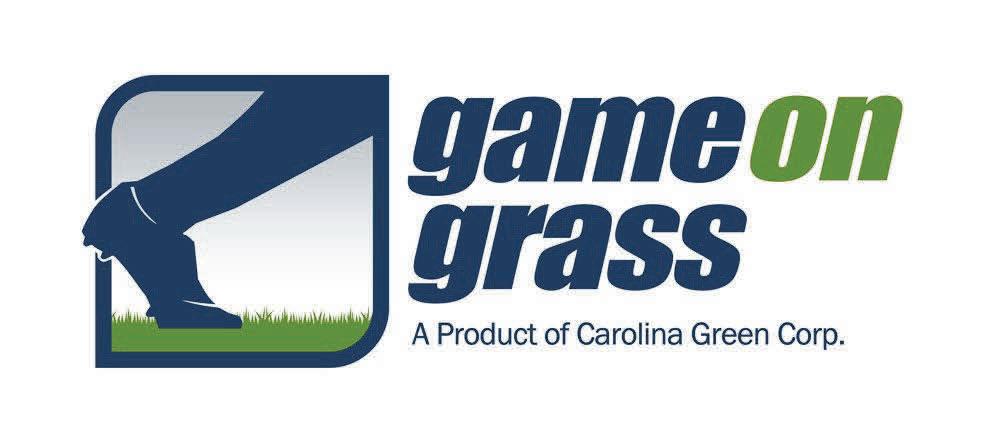

The major broadleaf weed found in sports fields was clover with 60% of respondents indicating this weed, followed by nutsedge at 25%. With regards to broadleaf weed control practices a majority of the field managers indicated that they only applied broadleaf herbicides as a spot treatment. Phenoxy based herbicides were the herbicide of choice for clover while halosulfuron containing products such as SedgeHammer and ProSedge were used for nutsedge control.
Approximately 25% of sports turf managers did not apply herbicides or would hand weed if practical.
Cultural and mechanical programs that were mentioned to reduce weed encroachment included aerification programs, fertility programs to enhance turfgrass stand density, hand weeding, fraise mowing, and controlling traffic.
The major insect pests were white grubs with billbugs and fall armyworm as minor pest problems. Acelepryn (chlorantraniliprole) was used by a majority of the field managers (60%) followed by Dylox (trichlorfon) (30%) and Tetrino (tetraniliprole). Insect control decisions were based on pest history and on a as needed basis. Cultural programs to address insect pest damage were selecting insect resistant cultivars and promoting turfgrass growth to help in recovery of insect damage.
White grubs were listed as the major insect pest problem on sports turf fields.









The principal disease pests were based on the type of turfgrass. For bermudagrass fields spring dead spot was the key disease while on tall fescue fields brown patch was the major disease. Summer patch and dollar spot were the key diseases on Kentucky bluegrass fields. Also, the level of maintenance and restrictions on pesticide applications to fields would determine if disease control was applied preventatively, on an as needed basis, or not at all. A majority (60%) of field managers indicated that they applied fungicides on an as needed basis. However, if spring dead spot was present on bermudagrass fields or had a history on specific fields then a majority (80%) of managers would treat for this disease preventatively.
On tall fescue fields brown patch and dollar spot were key diseases followed by red thread and gray leaf spot. On the Kentucky bluegrass fields that were present on professional and collegiate baseball fields and mowed at approximately 1” preventive disease control programs were in place to control key diseases such as summer patch, dollar spot, and brown patch.
Disease control practices encompassed both chemical and cultural programs. The cultural programs mentioned included selecting disease resistance cultivars, irrigation timing to reduce leaf wetness and disease development, and fertility programs that help reduce disease severity by promoting plant growth.
Disease control with fungicides varied with respect to the disease and turfgrass species. For spring dead spot in bermudagrass the preferred fungicide was Kabuto (isofetamid) or Velista (penthiopyrad). For summer patch on low mowed Kentucky bluegrass the strobilurin (Qol) fungicides such as Heritage (azoxystrobin) or Fame (fluoxastrobin) were applied. If sports turf fields had a low pest threshold, then a preventative disease control program was implemented and would often consist of fungicides in the DMI chemistry such as Banner Max (propiconazole), strobilurin chemistry such as Heritage, and the SDHI chemistry such as Emerald (boscalid). The multi-target chlorothalonil fungicide was also added to a spray program.

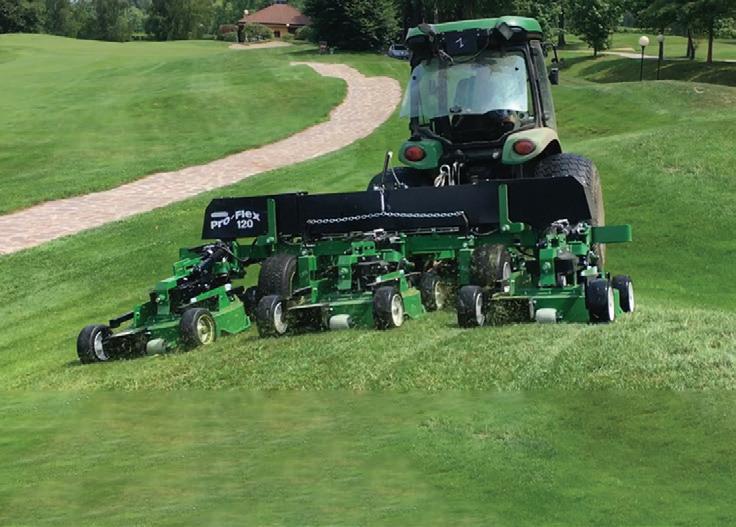



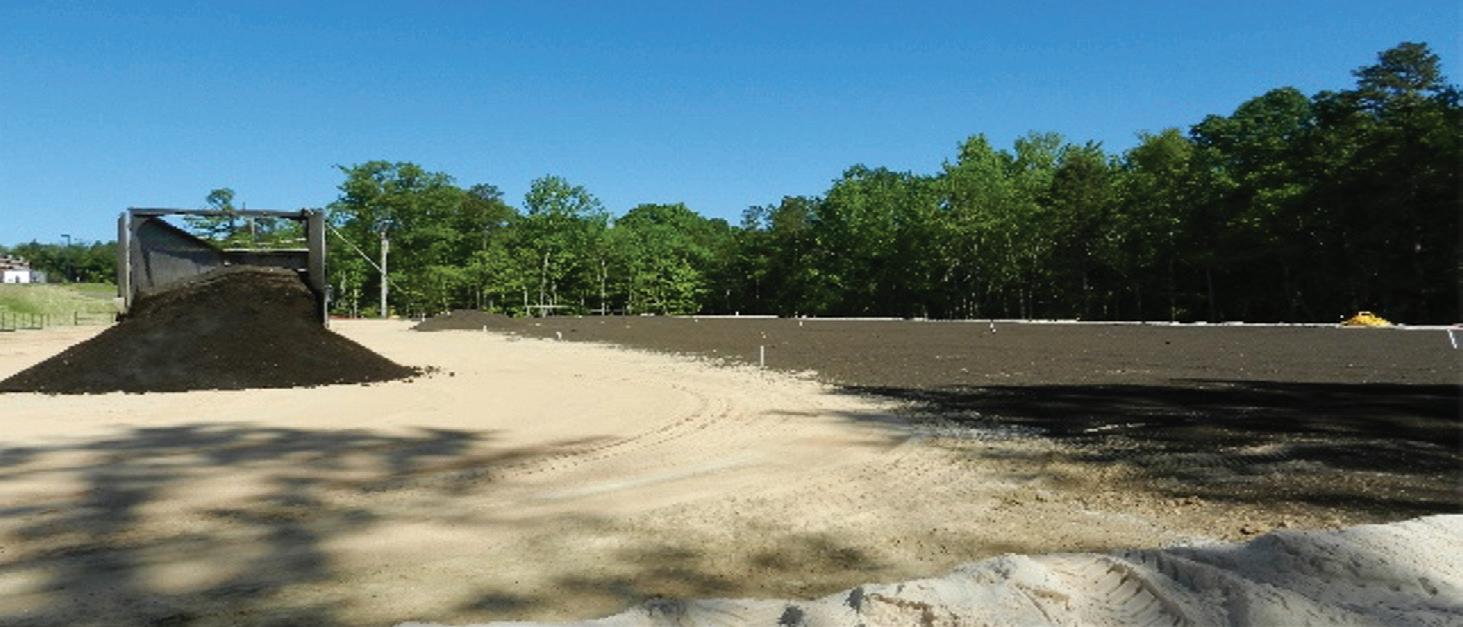









Virginia Turfgrass Council (VTC) serves its members in the industry through education, promotion and representation. The statements and opinions expressed herein are those of the individual authors and do not necessarily represent the views of the association, its staff, or its board of directors, Virginia Turfgrass Journal, or its editors. Likewise, the appearance of advertisers, or VTC members, does not constitute an endorsement of the products or services featured in this, past or subsequent issues of this bimonthly publication. Copyright © 2024 by the Virginia Turfgrass Council. Virginia Turfgrass Journal is published bimonthly. Subscriptions are complimentary to members of VTC. POSTMASTER: Send change of address notification to VTC, P.O. Box 5989, Virginia Beach, VA 23471. Postage guaranteed. Third-class postage is paid at Jefferson City, MO. Printed in the U.S.A. Reprints and Submissions: Virginia Turfgrass Journal allows reprinting of material published here. Permission requests should be directed to VTC. We are not responsible for unsolicited freelance manuscripts and photographs. Contact the managing editor for contribution information. Advertising: For display and classified advertising rates and insertions, please contact Leading Edge Communications, LLC, 206 Bridge Street, Suite 200, Franklin, TN 37064-3394, (615) 790-3718, Fax (615) 794-4524. Deadlines are the first of the month prior to the following month’s publication. (Example: August 1 for the September issue.)
